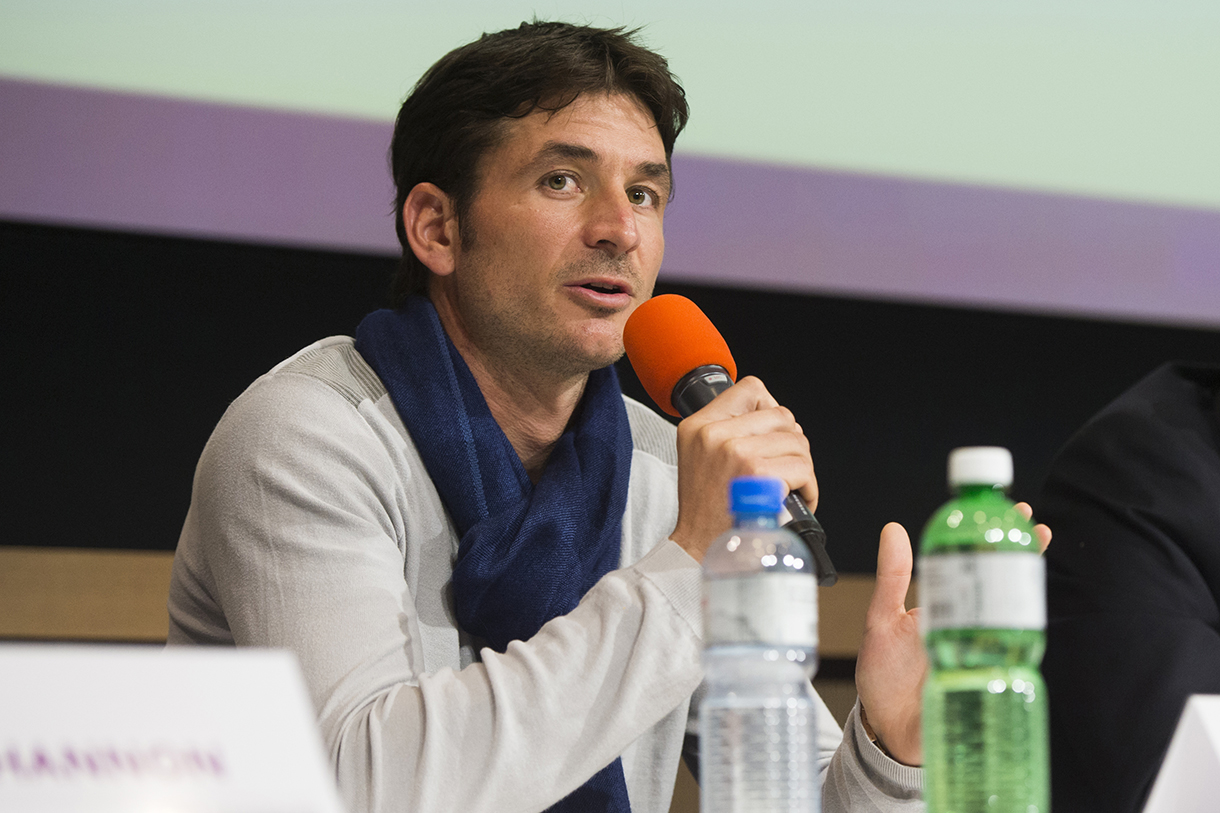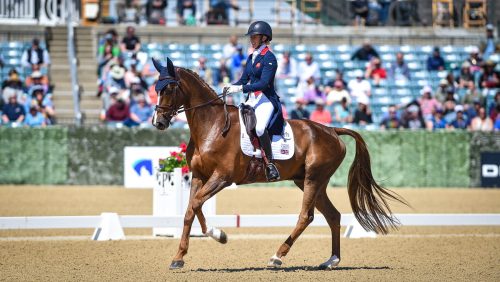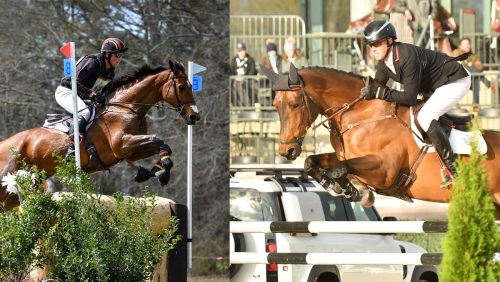David O’Connor came to the rescue as riders and stakeholders reached a deadlock with Fédération Equestre Internationale representatives over the proposals to reduce teams to three riders with no drop score, as one of the key mechanisms for remaining in the Olympic Games.
The FEI intended to discuss non-Olympic as well as Olympic topics in the Tuesday morning session of its annual Sports Forum in Lausanne, Switzerland. But during a lively four-hour debate, the subject kept returning to the conflict between upholding standards while aiming to admit new countries by reducing team membership to three.
O’Connor suggested that if three to a team was inevitable, a CIC be adopted in the eventing; statistics showed more countries were likely to complete if the cross-country was staged last.
“The danger of the Olympics being a place of non-completion is a very real fact,” said O’Connor. “The CIC could be the best product we are putting out there to showcase our sport in a way without a drop score.”
He also thought plans for a four-star CIC category would be the “game changer” in terms of producing three-star riders from younger nations to the next level, and he felt eventing had done itself a “disservice” by not introducing it sooner.
Dressage seems resigned to three in a team, but eventing and jumping raised the horse welfare risks of forcing three struggling horses to finish if there was no drop score. Judy Fasher of Australia said a low team completion rate would give the International Olympic Committee a “cast iron excuse” to remove eventing from the Olympic program anyway.
Mike Etherington-Smith, chair of the European federation working group, said the FEI was trying to make three diverse disciplines fit the same the formula. “Trying to straight-jacket the disciplines is all very sexy, but overwhelmingly the feeling [of riders] is we should focus more effort on sports presentation, and we have offered to be involved in that,” he said.
Eleonora Ottaviani, director of the International Jumping Riders Club, had surveyed 250 riders and reported unanimous preference for four to a team. Earlier, recent Longines FEI World Cup Show Jumping Final winner Steve Guerdat expressed his strong opposition to the new proposals.
ADVERTISEMENT
“Four riders with no drop score is not that difficult to understand,” Guerdat said. Regarding the public appeal of the FEI Nations Cup, he observed. “I am seeing packed stadiums in the second round at least of all the team contests I ride in. If TV thinks they are too long, then maybe don’t show it all.”
FEI President Ingmar De Vos and John Madden, FEI vice president and chair of the jumping committee, both argued that three to the team was the only way to involve more flags within the current quota of 200 horses. “The math is the same all around the world,” said Madden.
After the forum, De Vos said: “We have discussed three-rider teams three times now [at two forums and one General Assembly]. After today, we can say this is the way we have to go.
The FEI General Assembly, scheduled for Nov. 18-22 in Tokyo, will offer a simple majority vote on the proposal.
De Vos added: “Athletes probably still have a lack of information about what is driving all this. An athlete who has been successful in the traditional format will tend to not want change.”

FEI President Ingmar de Vos spoke on behalf of altering the number of riders on Olympic teams. Photo courtesy FEI.
The much vaunted debate about eventing’s name change came to naught, other than that the consensus that discussion will continue. [Read more about all of the proposals on the FEI site.]
The distinguished Los Angeles sports journalist Alan Abrahamson told delegates to see the challenge of remaining in the Olympics as an opportunity, not something born of desperation, and underlined the importance of engaging teenage spectators.
ADVERTISEMENT
The intensity of the Olympic format debate upset delegates who had travelled immense distances to discuss non-Olympic sports but were given little time given time to speak.
The Estonian endurance rider Jelena Sbitneva, who competes in the United Arab Emirates, was whistled down by delegates and rebuked by FEI Secretary General Sabrina Ibanez for after using the Olympic debate to attack the FEI for its handling of the March 19 Crown Prince Dubai Cup, which was disaffiliated following the organizer’s refusal to comply with the heart rate provisions of the Feb. 13 legal agreement between the UAE and FEI.
The FEI is understood to be discussing UAE endurance and its prospects for retaining the right to stage the 2016 world championship in the next two days.
During the Forum, delegates raised the importance of educational support from the FEI to increase the level of understanding of the sport amongst officials, and the correct application of FEI rules. There was general consensus that training and education are key to the development and understanding of the sport. Some high-profile eliminations, such as Bertram Allen’s disqualification from Olympia (England) in December, have caused some riders to question decisions made by officials.
“People need to learn to follow procedures, judges need to learn that, but one thing we cannot miss is the horsemanship these people should have,” Guerdat said. “Yes we need rules, the rules are black and white, but we must not forget we have a horse in our sport, a living animal, and the officials must understand the importance of horsemanship.”
Education was the focus of the second session, giving delegates the opportunity to raise questions on the involvement of National Federations in educating officials, balancing costs without impacting quality, and focusing on standards and education strategy.
Maarten van der Heijden, Secretary General of the Royal Dutch Equestrian Federation, called for standardised education material, and underlined the willingness of the Federation to share its own material for use by the FEI and other National Federations for education purposes.
“The riders want to have good judges so we can stay on a level playing field and look after our horses, we want clean sport and we want good judges,” Guerdat said. “Unfortunately we need to find money and I understand it’s very expensive. On my point I would have absolutely no problem giving away part of the prize money, but I’m sure I’m one of the few riders.
“There’s a lot of pressure on those people, they have big decisions to take. We could maybe help them by creating a kind of panel to help them take the big decisions. It shouldn’t only be the steward and judges. Maybe have a vet, a rider, an independent person for the panel.”















